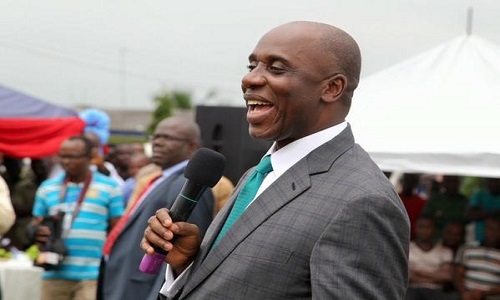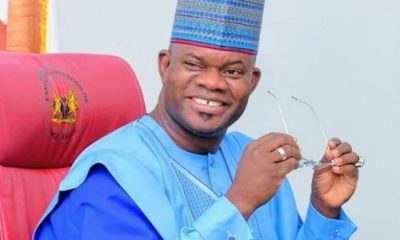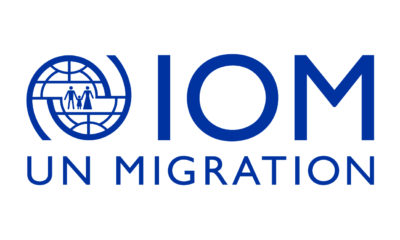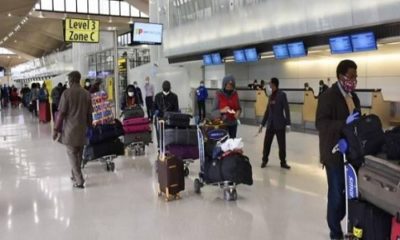Opinion/Feature
States’ Emergency Declaration On Education And The Buni Vision
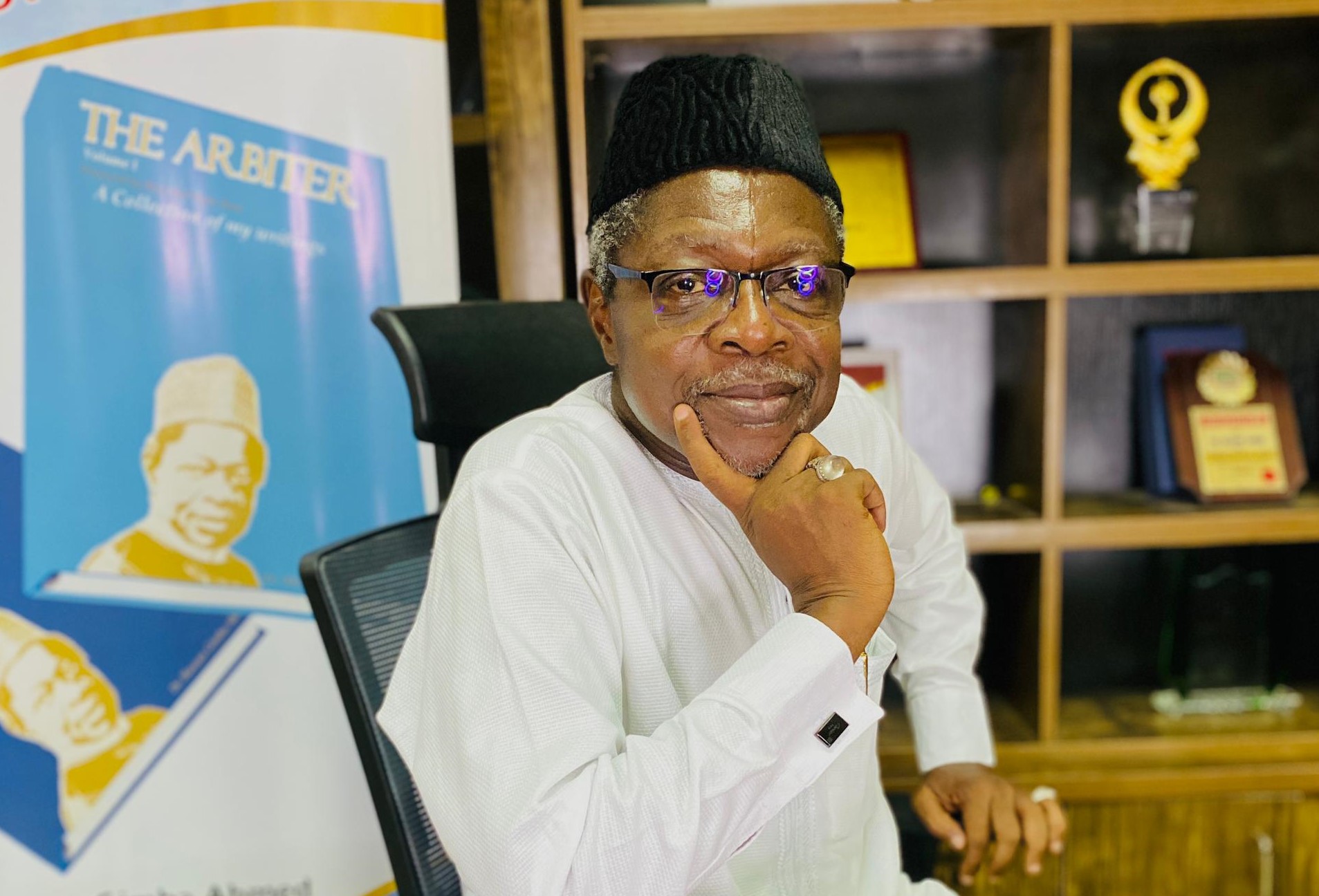
By Hassan Gimba
In the past few months, there has been some incessant din over the plight of education across the country, how deplorable it has become and concerns over how to bring it out of the shambles it has been shovelled into as a result of long-term negligence by those who should nurse it after benefitting from it.
Many of us who were in this part of the world before 1980 knew what schools were and how governments went the whole hog to make them qualitative while making the academic environment so conducive.
The managers of education did not compromise quality and standards for they were aware that any pupil with the right foundation in primary and secondary education, can venture into the world and be a huge success. And funds for that were adequately utilised.
We had our primary and secondary education almost free. Uniforms, books and meals were provided. Mattresses, blankets, mosquito nets, detergents, soaps, pocket money and even transport fares were provided for secondary students. No student bought his chair, desk, or bench.
There was adequate power supply, and pipe-borne water was taken for granted. Nobody knew of boreholes because the central water supply was functioning. There were generators in case of power failure and the maintenance culture was commendable as well. School children were encouraged to engage in wholesome extracurricular activities.
Up to the mid-80s our primary and secondary schools were bastions of excellence while our tertiary institutions were citadels of learning. We were prouder to gain admission into a Nigerian university than to go abroad to study, then.
I recall that going to the School of Basic Studies (SBS) of Ahmadu Bello University, Zaria (ABU) was more prestigious than even going to study in America. Any student you saw in ABU Zaria then had passed his General Certificate of Education (GCE) with flying colours while only those who failed the West African Examination ran abroad, where in most cases admission criteria were lower than obtainable here. And so we took the entrance examination to SBS and left our mates who failed their GCE to japa out on a scholarship to study abroad.
But since then, the reverse has become the norm; now studying abroad confers on one a status that studying at home does not. And all this is no thanks to those in charge of our education who deliberately allowed it to get rotten while profiteering from it.
What do you make of a situation where a person superintending education would take his child to a private school or abroad? What do you make of a situation where a student here may score nine credits but fall short by a few marks in JAMB to secure admission to study medicine while his classmate with three credits and zero points in JAMB can go abroad to study medicine and return to Nigeria as a medical doctor?
Perhaps, alarmed by the negative trajectory education has taken in this country, a lot of stakeholders who know what education should be like have started declaring, or calling for the declaration of, emergency in the education subsector.
For instance, six months after he was sworn in as governor of Zamfara State, Dauda Lawal declared a state of emergency on education, because, according to him “the neglected education sector in Zamfara affected all levels, from primary to tertiary, with poor learning environment and personnel.”
Similarly, the governor of Kano State, Alhaji Abba Kabir Yusuf, on Friday, 14 July, about two months after being sworn in, also declared a state of emergency in the education sector. The declaration was intended to “hasten actions in delivering services to guarantee access to quality education for all in Kano”.
Likewise, lending a voice to the forum of the wives of state governors who, among others, called on the federal government to declare a state of emergency on education, the International Ford Fellowship Programme Alumni Nigeria (IFFPAN) recently urged President Bola Tinubu to immediately declare a state of emergency on compulsory basic education programmes across the country.
The IFFPAN, an independent, nonsectarian, nonpartisan, private, nonprofit, social justice organisation for Nigerian Alumni (Fellows) of the International Fellowship Programme of Ford Foundation, United States, urged the president to spare no effort in ensuring that young Nigerians have a solid footing for the realisation of their dreams.
However, long before all of them, Mai Mala Buni, the governor of Yobe State had declared a state of emergency on education in his state. He said that the decision was to consolidate the solid foundation put in place by his predecessor, Alhaji Ibrahim Gaidam.
Unlike others who waited months into their tenure before declaring what is in the interest of their people, he made his declaration in his first inauguration speech as governor on 29 May 2019.
And perhaps they, especially the northern governors, may have some takeaways from his vision. This is because all the states have witnessed a fall in their standard of education. But, significantly, almost all the states, in one way or the other, have witnessed either insurgency or banditry.
Having known what education used to be and realising its fall in the state, aided by the onslaught of insurgents, Governor Buni wasted no time in establishing new schools, renovating and building new hostels and classrooms in existing schools, building and equipping laboratories and ICT Centres.
His vision led to the recruitment of over 4,000 education staff and the retraining of almost 30,000 others, rather than sacking them and compounding the problem of unemployment and insecurity in the state and nation.
There has also been a significant increase in the number of Yobe undergraduates studying at home and abroad due to improved scholarship programmes. The governor’s policies led to a drop in the number of out-of-school children by over 75 per cent, according to Dr Mohammed Sani, his former commissioner of education, who oversaw the transformation of almajiri schools into modern tsangaya, as a result of which he is now heading the National Almajiri Commission.
Hassan Gimba is the publisher and editor-in-chief of Neptune Prime.
Opinion/Feature
Downstream Deregulation: Between Obasanjo’s Half-measures And Tinubu’s Bold Leadership

Opinion/Feature
UNCOMMON SCHOLAR, EXCEPTIONAL ADMINISTRATOR: MY TRIBUTE TO PROF. OLOYEDE AT 70

By President Bola Tinubu
As Professor Ishaq Oloyede turns 70 tomorrow, October 10, I pay a special tribute to this astute administrator, educator, author, and scholar, currently the Joint Admissions and Matriculation Board (JAMB) Registrar.
As the former Vice Chancellor of the University of Ilorin, Prof. Oloyede’s invaluable contributions to the nation through academia and public-sector administration have significantly impacted the academic community.
ALSO READ: Tinubu Congratulates Zainab Shinkafi-Bagudu On Her Election As President, UICC
His impactful tenure at the University of Ilorin, during which he introduced landmark ideas and innovations that helped the institution attain enviable heights, is on record.
Through patriotic dedication and commitment to his craft, Prof Oloyede imparted knowledge and character to thousands of students who underwent his teaching during his glorious and impactful academic career.
Indeed, the bedrock of development lies in education. Developing nations, including Nigeria, are in dire need of more scholars like Prof. Oloyede. His selfless sacrifices and innovative approaches to learning and leadership give hope for a brighter future.
Perhaps more remarkable is Prof. Oloyede’s transformative leadership at JAMB. He pioneered and sustained a series of reforms and technological innovations that have made the admission process in Nigeria transparent and credible.
In his eight years of stewardship at the board, thus far, Prof. Oloyede has demonstrated an uncommon commitment to financial integrity and accountability in public service. He has also raised the bar in administration and management.
I am proud of Prof. Oloyede’s accomplishments.
The nation owes the Professor of Islamic Jurisprudence a debt of gratitude for transforming JAMB, traditionally a non-revenue-generating government agency, into a consistent contributor to the national treasury through efficient financial management. His contributions to JAMB are invaluable and greatly appreciated.
On this occasion of his 70th birthday, I join members of the academic community, students, JAMB staff, and well-wishers in celebrating this scholar who, in words and deeds, has also done a lot to propagate the Islamic religion.
I pray that Almighty Allah will continue to honour the distinguished professor with health, wisdom and strength to serve the nation for many more years.
Opinion/Feature
Clarification On NNPCL Refinery Operations
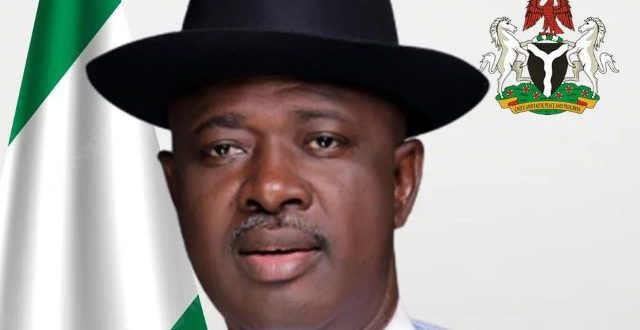
By Sen. Heineken Lokpobiri PhD
My attention has been drawn to statements made by Engr. Kamoru Busari, Director of Upstream in the Ministry of Petroleum Resources, who represented me at a recent conference in Lagos. I wish to categorically state that the claim that I directed the Nigerian National Petroleum Company Limited (NNPCL) to stop running its own refineries and focus solely on equity participation in other refineries is false. This does not represent my position as Minister overseeing the oil sector, nor does it reflect the stance of the Federal Government.
It is important to clarify that NNPCL is a company governed under the Companies and Allied Matters Act (CAMA), with a functional board and management. The Ministry of Petroleum Resources does not control or run NNPCL, as it operates independently like any corporate entity.
ALSO READ: NNPC/Seplat JV’s “Eye Can See” Programme Restores Vision, Hope In Imo
The oil and gas sector is fully deregulated, and the Nigerian government remains committed to promoting in-country refining. We encourage companies, including NNPCL, to operate independently, following global best practices. While we provide strategic guidance, we do not interfere directly in the operations of these companies.
I reaffirm our commitment to supporting the growth and independence of NNPCL, ensuring that its operations are in line with international standards for efficiency and transparency and profitability.
Sen. Heineken Lokpobiri PhD, Minister of State Petroleum Resources (Oil), wrote from Abuja, Nigeria

